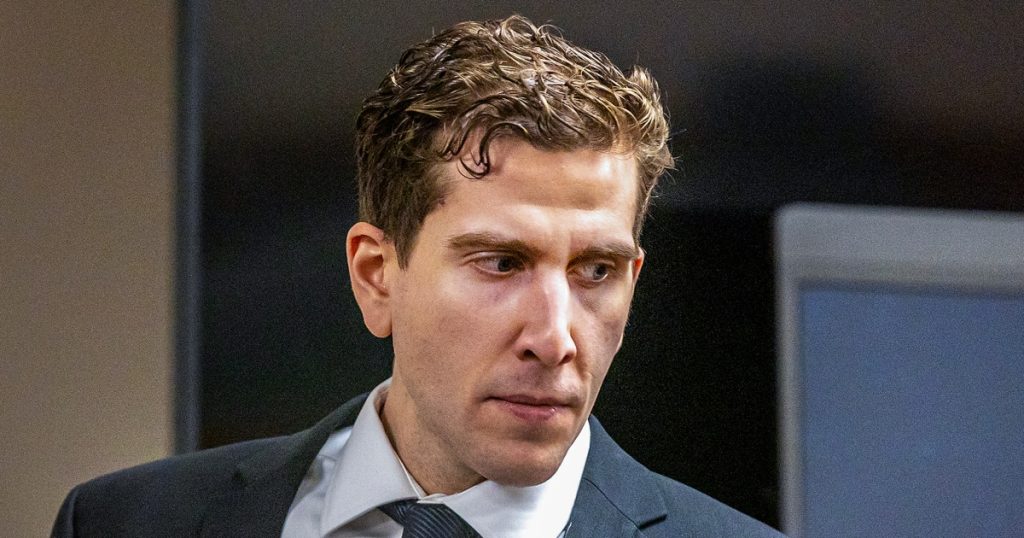The legal team of Bryan Kohberger, who has been accused of killing four University of Idaho students in 2022, claims that cellphone tower data proves he was not at the scene of the crime when the murders occurred. The victims were stabbed to death in their off-campus residence in Moscow, Idaho, and DNA evidence led investigators to Kohberger. He was indicted for murder by a grand jury in May last year, and his attorneys argue that his alibi is supported by his mobile device’s location data. Kohberger, who lives in Pullman, Washington, 9.5 miles away from the crime scene, has pleaded not guilty and was arrested in Pennsylvania in December 2022.
Kohberger’s legal team plans to rely on testimony from a cell tower data expert, Sy Ray, to prove their client’s innocence. Ray, who has experience in law enforcement, is expected to demonstrate that Kohberger was miles away from Moscow at the time of the murders. The defense claims that critical exculpatory evidence has either not been preserved or withheld, further corroborating Kohberger’s alibi. They argue that his cellphone data and nighttime drives, as well as photographs he took of the night sky, support their case. Authorities previously obtained cellphone data from the area at the time of the killings but did not capture Kohberger’s phone as it was turned off. A separate search warrant later revealed his movements before and after the incident.
An affidavit filed by the defense argues that Kohberger’s car cannot be the same one seen near the crime scene based on travel patterns observed on the night of the murders. They assert that his nighttime drives increased as his outdoor activities decreased, a claim supported by cellphone data and other evidence. Additionally, investigators found that he had been near the victims’ residence on multiple occasions in the months leading up to the killings, further complicating the case. Kohberger’s legal team intends to use this information to challenge the prosecution’s case and establish their client’s innocence beyond a reasonable doubt.
Cellphone tower data and expert testimony will play a crucial role in determining Kohberger’s fate as he faces murder charges in connection with the deaths of the four students. The defense seeks to counter the prosecution’s claims by presenting evidence that places Kohberger elsewhere at the time of the murders. The alleged discrepancies in the investigation, including the possible withholding of evidence, raise questions about the validity of the case against him. By examining the timeline of events, cellphone records, and other relevant information, both sides will attempt to establish the truth and secure justice for the victims and their families. Kohberger’s trial is expected to shed light on the circumstances surrounding the tragic incident and provide closure for all those affected by the senseless loss of life.
In conclusion, the legal battle surrounding Bryan Kohberger’s alleged involvement in the University of Idaho student murders hinges on the interpretation of cellphone tower data and expert testimony. The defense’s argument that Kohberger’s alibi is supported by his mobile device’s location data adds a new dimension to the case. With the help of an experienced witness, they aim to challenge the prosecution’s claims and prove their client’s innocence. As the trial progresses, the validity of the evidence presented by both sides will be closely scrutinized to determine the truth behind the tragic events of November 13, 2022. The outcome of this case will have far-reaching implications for all parties involved and will shape the course of justice in the aftermath of this devastating crime.


